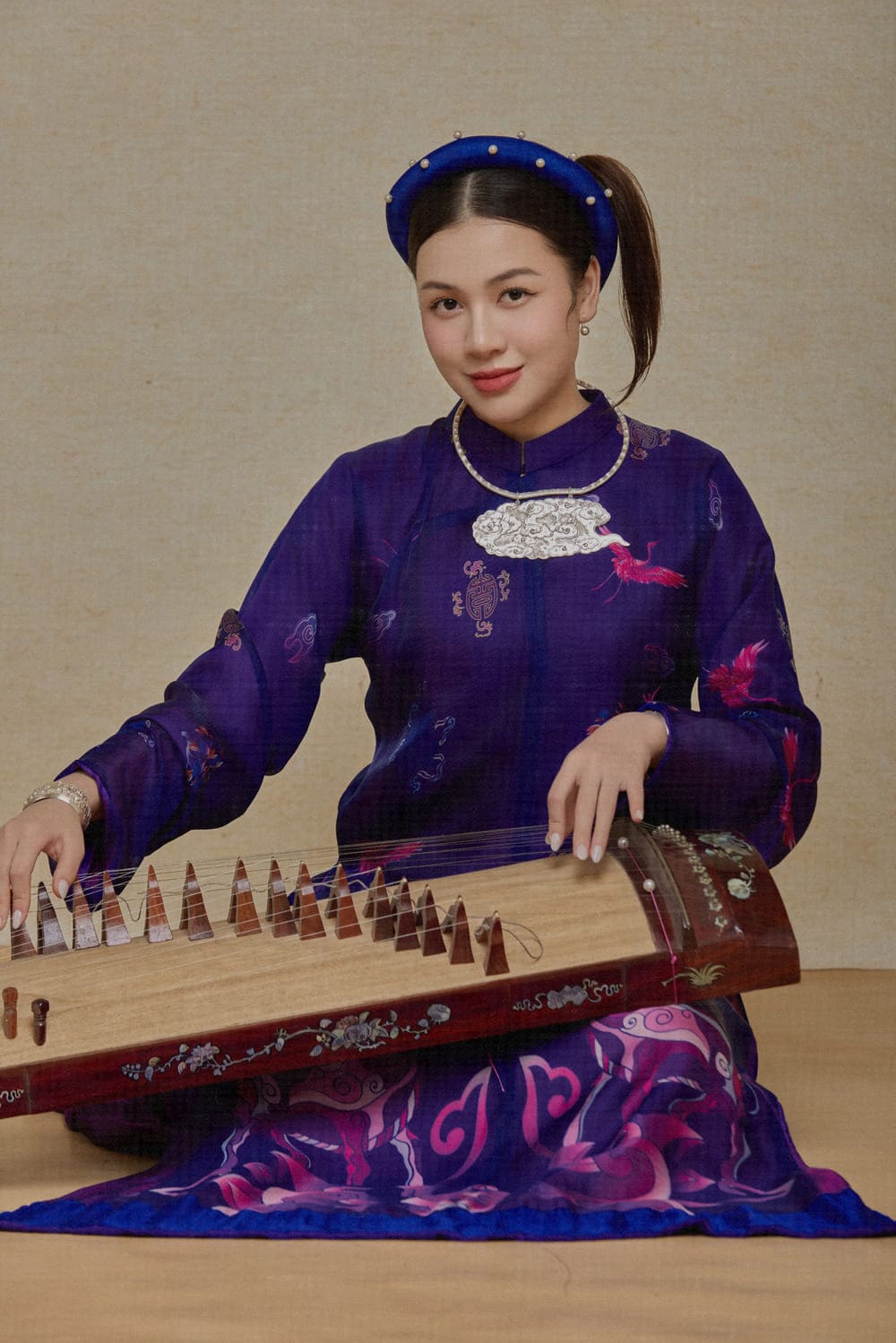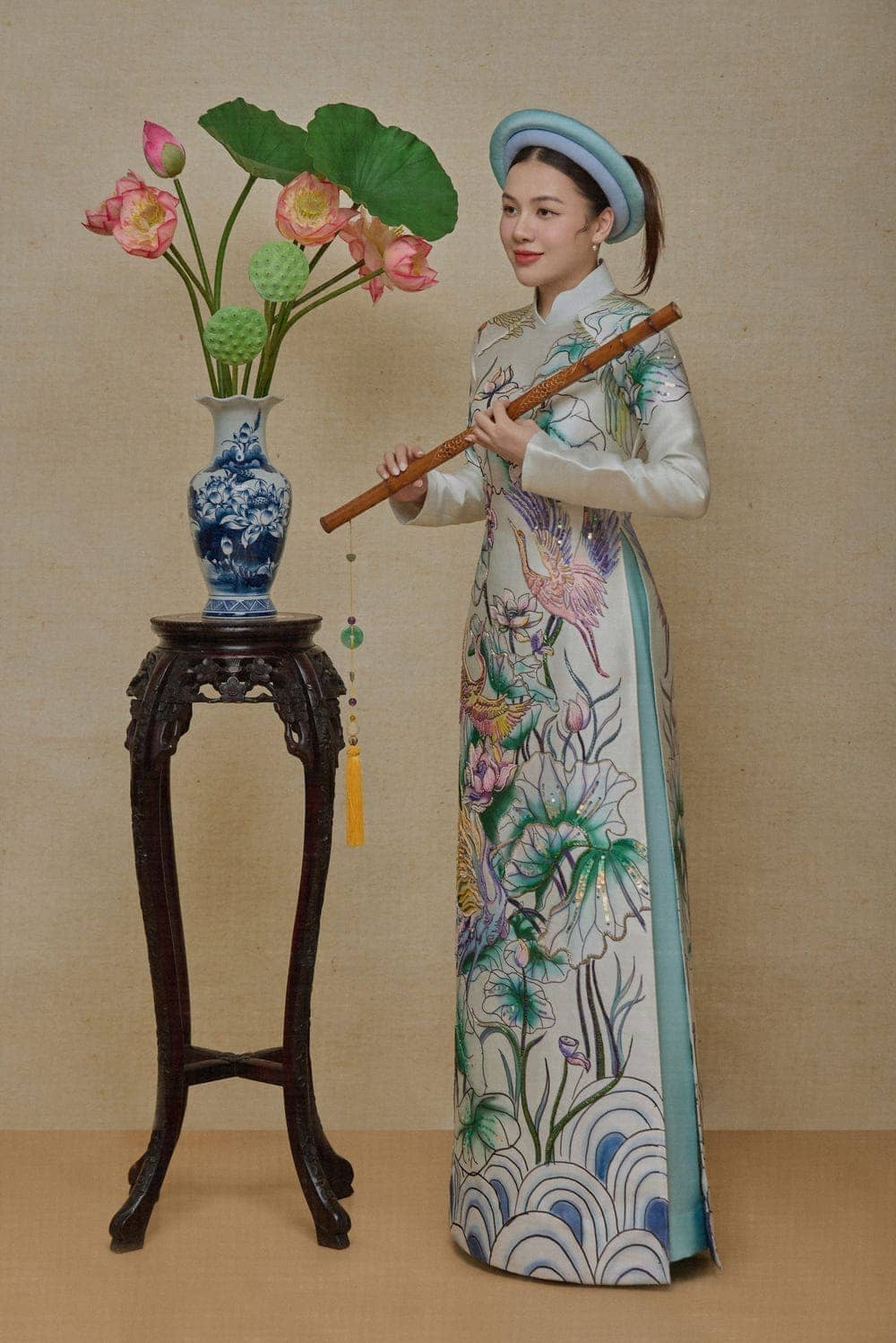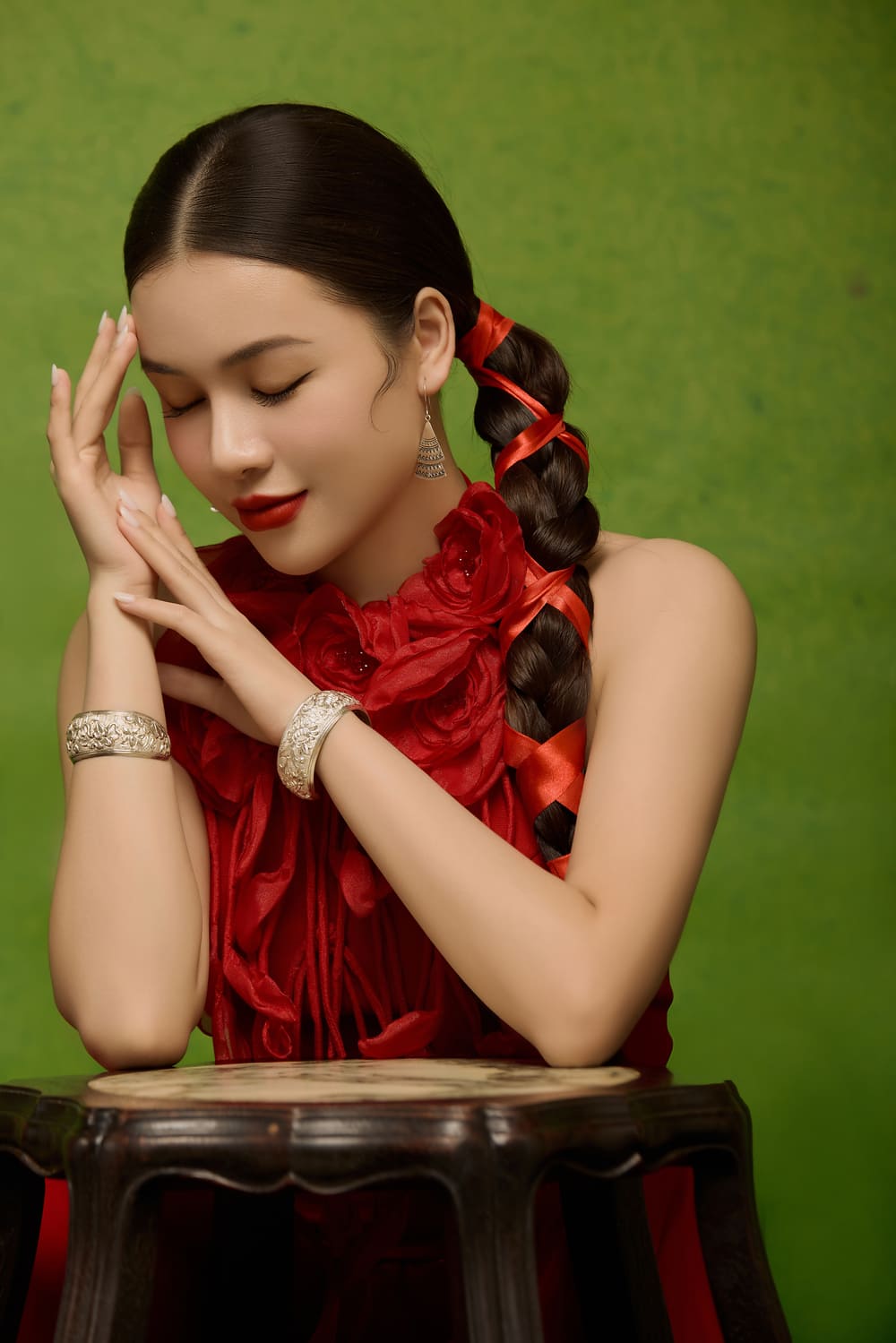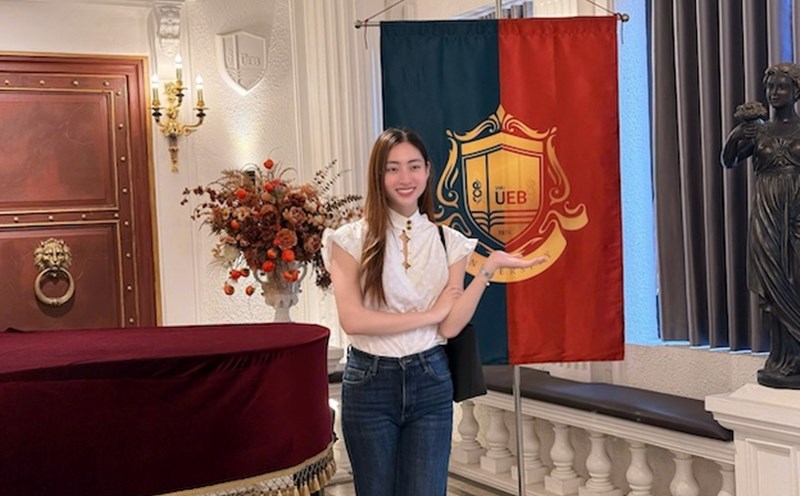Unlike most young artists today who choose trendy music genres, Vu Thuy Linh is passionate about traditional music. In particular, “To dong thanh thot” includes 4 famous Vietnamese folk songs: “Lung lieng” (Quan ho Bac Ninh), “Cong cha ngai me sinh thanh” (Xam singing), “Luyen nam cung” (Cheo singing), “Chou nam suo Lan” (Chou van) and a pop song “Giai dieu Viet Nam minh” - FPT Edu Tich Tich Tinh Tang.
The youthfulness in the voice along with the classical and modern arrangement of musician Luu Quang Minh has made familiar folk songs become new and youthful.

Vu Thuy Linh does not sing with a strong folk color and does not show off her chamber music color too clearly in her singing style, so listening to her sing is very pleasant, not too exaggerated to show off her technique, but not too "sweet" in the usual folk singing style. This is what makes the difference, and creates the image of Vu Thuy Linh in music - exactly the way she chooses to introduce to the public.
In addition to the four main works in the new album, Vu Thuy Linh did not forget to give young audiences a song with a cheerful and vibrant melody - "My Vietnamese Melody" (composed by Tuan Cry).

Born in 1999, Vu Thuy Linh graduated from the Faculty of Music Pedagogy at the Military University of Culture and Arts. She is currently studying for a master's degree in music teaching theory and methodology at the Central University of Art Education, and is also studying for a second degree in Business Administration at the National Economics University.
Since childhood, Vu Thuy Linh has shown a talent for singing. When she grew up, she chose music education and was passionate about classical chamber music. However, Vu Thuy Linh changed direction, choosing folk music but arranged with a symphony orchestra.

With diligence, constant learning, will and passion, determination to pursue music, Vu Thuy Linh promises to soon achieve success in her singing career, not only to satisfy her personal passion but also to help the young female artist express her musical "manifesto", which is "interfusing the new but still preserving the identity of the old", and "Creating paradoxes into reason with their own color".





